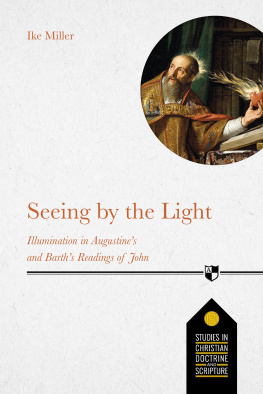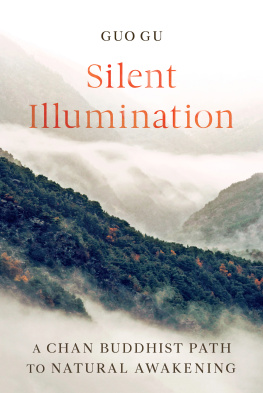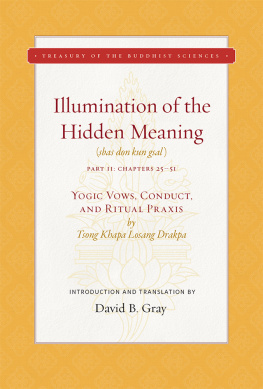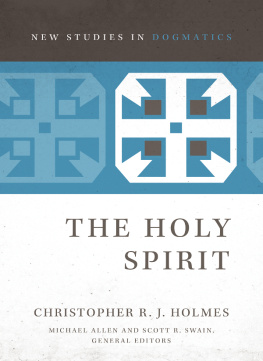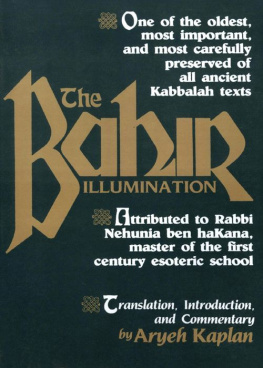CD Karl Barth, Church Dogmatics
De. Doc. Chr. Augustine, De doctrina Christiana
De Trin. Augustine, De Trinitate
GD Karl Barth, Gttingen Dogmatics
Tr. in Io. Ep. Augustine, Tractatus in Iohannis Epistulam
Tract. Augustine, Tractatus in Iohannis Evangelium
T he gratitude that I feel toward all who have been a part of making this book possible far exceeds my capacity to express it. Looking across the span of time in which this journey has taken place, so many people have stepped into our lives not only to make this journey possible but to make it a fulfilling and enrichening experience for my entire family. We have been fortunate enough to have found truly life-giving community in three different churches at various stages in this process. Serving in ministry alongside Andrew and Melissa Brownback at Willow Creek North Shore not only proved to be an important pastoral balance to life in academia but also afforded us a friendship with an extraordinary couple that will truly be lifelong.
Not long after the birth of our first son, Isaac, we connected with an incredible community of people at Alpine Chapel. Dave Mudd and Alex and Caryn Hartmann opened their church, their life, and their friendship to us in ways that rarely happen more than once in a lifetime. In the small group we led there we found what may be one of the warmest communities of friends we will ever know. Moving away from this community of friends will long be one of the more heartbreaking decisions we have had to make.
And now, as we have journeyed over the last year of answering the call to plant Bright City Church in Durham, North Carolina, we have developed such an incredible community of people, dedicated to this mission and gifted for this task of church planting in ways only God could have foreknown. Bright City is a light that shines the glory of God on earth and is a foretaste of that coming kingdom, which needs no sun because God himself gives it light. Thank you to an incredible team of people who have made Bright City a reality. You are surely the embodiment of the light of divine life on earth.
Two people without whom this work would have been categorically impossible are my father-in-law and mother-in-law, Rich and Deborah Hodde. As Sharon and I worked simultaneously to complete PhD programs, write books, have children, and plant a church, there is simply no way it could have all been done without the endless time and energy that they have so generously and abundantly given to us. On top of that, they have offered tremendous affirmation and emotional support at times when we have needed it most. Thank you!
My mother, Ellen Miller, has likewise offered me tireless support. This support has come not least in the form of weekly trips to our home to help with our little ones so that Sharon did not carry the weight of this work herself. She has offered incredible encouragement at every turn, and in an intangible way, there are few greater joys in the world than to see your parents playing with your children. She has loved me so well, but not simply by loving me, but by loving well the other most important people in my life.
Early in my doctoral program, Thomas McCall not only challenged me to think with a relentless pursuit of clarity in academic matters but proved an important and even reassuring voice as I worked to find my place in the Trinity Evangelical Divinity School community. Richard Averbeck was nothing short of a pastor to our community of PhD students and the model of an individual who truly approaches his academic work as his ministry. Finally, I want to express the inexpressible, my unspeakable gratitude to Kevin Vanhoozer, who directed the project that serves as the backbone and basis of the present study. His dedication to me as a student, to this project, to the advancement of theology, and above all to my spiritual and theological formation have been evident at every point in this journey. His remarkable capacity to both encourage and instruct with an incredible humility made him a pleasure to work under, even as he would accept nothing less than excellence in this projects execution. Above all else, his attentiveness has not ceased to amaze me. He has cared not only for the project but for me as the person behind the project, and for that I am eternally grateful.
The gratitude I owe the very most of all, however, is to my wife. I could write a book simply on all the reasons I am thankful for you, Sharon. At the very heart of it all is your steadfastness. You have been my anchor. Regardless of the challenges of being in doctoral programs together while having children, working full-time, serving in ministry, and writingand now colaboring as we plant Bright City Churchyou are what makes the beauty of us happen. You are both my inspiration and my place of peace, my motivation and my escape. You and our childrenIsaac, Coen, and Sadiemake my world go around, and life with you four is full of unspeakable joy. I love you.
Ables, Travis E. Incarnational Realism: Trinity and the Spirit in Augustine and Barth . T&T Clark Studies in Systematic Theology 21. New York: T&T Clark, 2013.
Allen, Diogenes. Philosophy for Understanding Theology . Atlanta: John Knox, 1985.
Anatolios, Khaled. Retrieving Nicaea: The Development and Meaning of Trinitarian Doctrine . Grand Rapids: Baker Academic, 2011.
Andrews, James. Why Theological Hermeneutics Needs Rhetoric: Augustines De Doctrina Christiana . International Journal of Systematic Theology 12, no. 2 (2010): 184-200.
Annice, M. Historical Sketch of the Theory of Participation. The New Scholasticism 26 (1952): 49-79.
Aquinas, Thomas. Commentary on John . Translated by Fabian R. Larcher. 2 vols. Lander, WY: Aquinas Institute, 2013.
___. Disputed Questions on Spiritual Creatures (De spiritualibis creaturis) . Translated by Mary C. Fitzpatrick and John J. Wellmuth. Milwaukee: Marquette University Press, 1949.
___. Summa Theologica, Prima Pars . Translated by Fathers of the English Dominican Province. First American Edition. New York: Benziger Brothers, 1947.
Arndt, William F., Walter Bauer, and Frederick W. Danker, eds. A Greek-English Lexicon of the New Testament and Other Early Christian Literature . 3rd ed. Chicago: University of Chicago Press, 2000.
Augustine. De Trinitate . Edited by John E. Rotelle. Translated by Edmund Hill. Works of Saint Augustine 5. New York: New City Press, 1991.
___. The City of God Against the Pagans . Edited by R. W. Dyson. Cambridge Texts in the History of Political Thought. New York: Cambridge University Press, 1998.
___. The Confessions . Translated by Maria Boulding. New York: Vintage Books, 1997.
___. Homilies on the Gospel of John . Edited by Philip Schaff. Nicene and Post-Nicene Fathers 7. Peabody, MA: Hendrickson, 1994.
___. On Grace and Free Will . Edited by Philip Schaff. Nicene and Post-Nicene Fathers 5. New York: Cosimo, 2007.
___. Sermons 184-229. Translated by Edmund Hill, O.P. Brooklyn: New City Press, 1993.
___. Tractates on the Gospel of John 110 . Translated by John Rettig. Fathers of the Church 78. Washington, DC: Catholic University of America Press, 1988.
___. Tractates on the Gospel of John 1127 . Translated by John Rettig. Fathers of the Church 79. Washington, DC: Catholic University of America Press, 1988.
___. Tractates on the Gospel of John 2854 . Translated by John Rettig. Fathers of the Church 88. Washington, DC: Catholic University of America Press, 1993.
Averbeck, Richard E. God, People and the Bible: The Relationship Between Illumination and Biblical Scholarship. In Whos Afraid of the Holy Spirit? , edited by Daniel B. Wallace and M. James Sawyer. Dallas: Biblical Studies Press, 2005.
Barrett, C. K. The Gospel According to St. John: An Introduction with Commentary and Notes on the Greek Text . 2nd ed. Philadelphia: Westminster, 1978.

